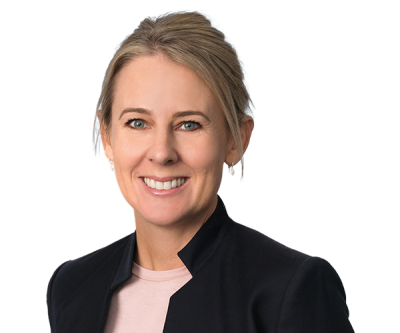
Cayman Islands private client structures and beneficial ownership - changes of note
开曼群岛私人客户架构和实益所有权 —变更注意事项
On 31 July 2024, the Cayman Islands Beneficial Ownership Transparency Act, 2023 (“BO Act”) and the accompanying Beneficial Ownership Transparency Regulations, 2024 (“BO Regulations”) were brought into force. At the same time, Guidance on Complying with Beneficial Ownership Obligations in the Cayman Islands (“BO Guidance Notes”) was published on the General Registry’s website.
The new requirements (referred to broadly below as the “New BO Regime”) introduced by the BO Act, BO Regulations and BO Guidance Notes were considered in detail in our recent briefing note. This summary considers how private clients, and, in particular, those who have established structures involving trusts with underlying companies incorporated under the laws of the Cayman Islands, might be impacted by the New BO Regime in practice.
2024年7月31日,开曼群岛 2023 年《实益所有权透明度法案》以下简称“实益所有权法案”)与2024 年《实益所有权透明度条例》(以下简称“实益所有权条例”)一同生效。与此同时,开曼群岛公司注册处在其网站上发布了《关于在开曼群岛履行实益所有权义务的指导》(以下简称“实益所有权指导”)。
我们稍早前也就有关实益所有权法案、实益所有权条例和实益所有权指导中更新的要求(以下统称“新实益所有权制度”)发表了详细分析。本摘要旨在讨论在实践中,新实益所有权制度会对私人客户,特别是使用根据开曼群岛法律设立了信托架构以及信托架构下的公司的高净值客户的影响。
Relevant changes
As a consequence of the New BO Regime a wider class of Cayman Islands entities will fall within scope of the reporting obligations. This is because the New BO Regime removes certain exemptions applicable under the old rules and also includes additional types of Cayman Islands entities previously out of scope. As a result of these changes a number of vehicles commonly used for wealth structuring will now also fall within the scope of the New BO Regime, including foundation companies and private trust companies (“PTCs”).
While trusts remain out of scope of the New BO Regime (and there continues to be no requirement to register trusts themselves in the Cayman Islands), underlying trust companies and other entities falling within the definition of a "Legal Person" (discussed below) (which we will refer to as a "Trust Underlying Entity") are included. This means that persons deemed to be the Registrable Beneficial Owners of a Trust Underlying Entity will be registrable under the New BO Regime.
Legal Person under the New BO Regime
The following Cayman Islands incorporated, formed or registered entities are within the scope of the New BO Regime:
- a company;
- a limited liability company;
- a limited liability partnership;
- a limited partnership;
- a foundation company;
- an exempted limited partnership; or
- any other legal person that may be prescribed in regulations (so far none has been), (each a "Legal Person").
A person who is deemed to be a Registrable Beneficial Owner (discussed below) of a Legal Person under the New BO Regime will therefore need to be included on the beneficial ownership register (the "Register") of that Legal Person.
Who will be a "Registrable Beneficial Owner" of a Legal Person?
Under the BO Act the following natural or legal persons may be registrable in relation to a Legal Person (each a “Registrable Beneficial Owner”):
a) a natural person (subject to the exclusion of certain deeming provisions that are outside the scope of this note and irrelevant in the trusts context) (a “Beneficial Owner”) who:
- ultimately owns or controls, whether through direct or indirect ownership or control, 25% or more of the shares, voting rights or partnership interests in the Legal Person;
- otherwise exercises ultimate effective control over the management of that Legal Person; or
- is identified as exercising control of the Legal Person through other means; or
b) a Legal Person (a "Reportable Legal Entity)":
- that directly holds a "Relevant Interest" (being an interest in a Legal Person comprising a partnership interest, shares or voting rights or ultimate effective control over its management).
- that ultimately owns or controls, whether through direct or indirect ownership or control, 25% or more of the shares, voting rights or partnership interests in the Legal Person;
- that otherwise exercises ultimate effective control over the management of that Legal Person;
- that is identified as exercising control of the Legal Person through other means; or
- through which a Beneficial Owner or other Reportable Legal Entity indirectly holds a Relevant Interest.
If there are no Registrable Beneficial Owners that can be identified then a senior managing official (i.e. a director or CEO) of the Legal Person is required to be registered as a contact person.
Information to be provided
In addition to information that must be provided concerning the Legal Person itself, unless there is an "alternative route to compliance" the relevant particulars of each Beneficial Owner of the Legal Person and any Reportable Legal Entity must also be provided. The alternative routes to compliance are unlikely to apply to private wealth holding vehicles (with the exception of licensed PTCs).
The relevant particulars to be provided in respect of each Beneficial Owner that is a natural person are:
- full name of each Beneficial Owner;
- residential address and address for service;
- nationality;
- date of birth;
- ID details;
- nature of control / ownership they have over the Legal Person; and
- date upon which they became or ceased to be a Registrable Beneficial Owner.
There is a requirement to update the Register on at least a monthly basis.
Compliance
The Legal Person itself will be responsible for establishing and maintaining the Register for the Legal Person with its corporate services provider (“CSP”) in compliance with the New BO Regime. The CSP will be responsible for filing the Register with the Cayman Islands responsible authority each month. Failure to comply carries civil and, in certain cases, criminal penalties.
Timing
Enforcement of the New BO Regime will not commence until January 2025, allowing a grace period to ensure compliance.
How will this affect trusts?
Trustees of trusts with a Trust Underlying Entity that is a Legal Person may be registrable if there is no other Beneficial Owner that can be identified. This is subject to the trustees satisfying the test for a Beneficial Owner outlined above, provided that they have ultimate effective control over the activities of the trust and that this is not solely in the capacity of professional advisor or professional manager. The position is straightforward for individual trustees, and Cayman Islands corporate trustees. Where the trustee is a foreign corporate trustee the name of the trustee and an individual within the foreign corporate trustee will need to be identified in the Register.
If there is any Registrable Beneficial Owner in relation to the Trust Underlying Entity, then their relevant particulars must be provided.
The BO Regulations provide that in relation to a Legal Person:
"a person controls a right, if by virtue of any arrangement between that person and others, the right is exercisable only:
- by that person;
- in accordance with that person's directions or instructions; or
- with that person’s consent or concurrence."
In this context, a person is deemed to have control of the Legal Person and as such will be a Registrable Beneficial Owner whether they have positive powers of direction or veto powers over the Legal Person. This means that the following individuals or entities may be classified as Registrable Beneficial Owners of a Trust Underlying Entity dependent on the scope of their powers:
- protectors;
- settlors and other power holders of reserved powers trusts; and
- enforcers of STAR trusts.
To determine if there are any Registrable Beneficial Owners controlling the Trust Underlying Entity it will be necessary to carefully consider the trust deed and any supplemental documents, along with any other arrangements in place such as powers of attorney and nominee agreements.
There is a trap for the unwary here. The legislation looks to the control actually exercised by individuals in practice, rather than based on the legal documentation in place. Therefore, in situations where the control arrangements in place in relation to trust assets have not been properly papered then, aside from the trust law issues this poses for the trustee, it could also result in inaccuracies in the Register.
Foundation companies
Foundation companies, regularly used in private wealth structures, should also be subject to review in order to ensure compliance. It will be necessary to carefully look over the provisions of the memorandum and articles of association along with any by-laws to determine whether the foundation company has any Registrable Beneficial Owners. In some basic foundation companies, the Registrable Beneficial Owner could simply be the Supervisor. However, due to the flexibility of foundation companies and the ability to include bespoke provisions to suit a wide range of different scenarios the Registrable Beneficial Owner of a foundation company with more complex constitutional documents could be any of the supervisor, the founder, the directors or others. Where there is no Registrable Beneficial Owner a senior managing official should be identified.
Foundation companies are also commonly used in the digital assets space and can form part of what are considered to be “ownerless” structures. The considerations for identifying the person or people considered to be Registrable Beneficial Owners set out above will also apply in respect of such foundation companies.
Private trust companies
Under the former regime, entities that were either licensed or registered under a regulatory act including the Banks and Trust Companies Act (Revised) were exempt. As a result, unlicensed PTCs were formerly exempt. This exemption no longer applies under the New BO Regime, and it will now be necessary to identify the Registrable Beneficial Owners of unlicensed PTCs. Where, as is typically the case, the PTCs’ shares are held by a STAR trust, the analysis in relation to trusts outlined above will apply.
Privacy considerations
For the time being, access to beneficial ownership information will not be granted to the general public. As was the case before the New BO Regime came into force, disclosure of this information will be confined to various public bodies and authorities, now specified in the BO Act.
However, it is important to note that the BO Act provides a framework for further regulations in relation to public access to be introduced in the future, and draft regulations are currently under industry consultation. In their present form, the draft regulations provide that anyone seeking public access will first be required to satisfy a “legitimate interest” test. A consultation process is also currently underway in relation to how public access should be restricted (in the event that public access is ultimately introduced at some point in the future). It is proposed that access would be restricted where affected individuals can demonstrate that the disclosure of their information could place them at serious risk of kidnapping, extortion, violence, intimidation, or other similar danger or serious harm. We are monitoring these potential developments and will provide a further update in due course.
As this is an evolving area, with a significant regulatory burden, private clients and trustees alike should take care to review their current structuring arrangements and prepare for the January 2025 deadline.
相关变更
在新实益所有权制度下,有报告义务的开曼群岛实体的范围有所扩大。这是因为新实益所有权制度取消了旧规则下适用的特定豁免,并纳入了以前不在范围内的其他开曼群岛实体类型。这些变更导致许多常用于设立财富架构的工具现在也被纳入了新实益所有权制度的范围,包括基金会公司和私人信托公司。
虽然信托本身在新实益所有权制度下仍不在需申报主体的范围内(且在开曼群岛仍不要求对信托进行登记),信托下的公司和其他符合“法人”(将在下文讨论)定义的实体(以下简称“信托下设实体”)纳入申报主体范围。这意味着,在新实益所有权制度下,被视为信托下社实体的实益所有人者必须进行登记。
新实益所有权制度下的法人
新实益所有权制度纳入了以下在开曼群岛设立、组建或注册的实体:
- 公司;
- 有限责任公司;
- 有限责任合伙企业;
- 有限合伙企业;
- 基金会公司;
- 豁免有限合伙企业;或
- 条例中可能规定的任何其他法人(截至目前尚无)(各称为“法人”)。
因此,在新实益所有权制度下被视为某法人的须登记实益所有人(将在下文讨论)需要在该法人的《实益所有权登记册》(以下简称“登记册”)中登记。
哪些人将是法人的“须登记实益所有人”?
实益所有权法案规定,以下自然人或法人须登记为某一法人的实益所有人(各称为“须登记实益所有人”):
(A) 满足以下条件的自然人(但须排除不在本注释讨论范围内,且与信托无关的推定条款)(以下简称“实益所有人”):
- 通过直接或间接所有权或控制权,最终拥有或控制法人 25% 或以上的股份、表决权或合伙权益;
- 以其他方式对法人的管理行使最终有效控制权;或
- 被认定为通过其他方式对法人行使控制权;或
(B) 满足以下条件的法人(以下简称“须报告法人实体”):
- 直接享有“相关权益”(即对法人享有的权益,包括合伙权益、股份或表决权,或对法人管理事务的最终有效控制权)。
- 通过直接或间接所有权或控制权,最终拥有或控制法人 25% 或以上的股份、表决权或合伙权益;
- 以其他方式对法人的管理事务行使最终有效控制权;
- 被认定为通过其他方式对法人行使控制权;或
- 被实益所有人或其他须报告法人实体用于间接享有相关权益。
如果无法确定须登记实益所有人,则必须将法人的高级管理人员(即董事或首席执行官)登记为联系人。
须提供的信息
除了必须提供有关法人本身的信息外,还必须提供法人各实益所有人和任何须报告法人实体的相关详细信息,但有“替代合规途径”的除外。替代合规途径不太可能适用于私人财富持有工具(持牌私人信托公司除外)。
就各自然人实益所有人而言,须提供的相关详细信息如下:
- 各实益所有人的全名;
- 住址及送达地址;
- 国籍;
- 出生日期;
- 详细身份信息;
- 其对法人享有的控制权/所有权的性质;以及
- 其成为须登记实益所有人或丧失该身份的日期。
登记册必须至少每月更新一次。
合规
在新实益所有权制度下,法人本身有责任通过其企业服务提供商(以下简称“企业服务提供商”)创建并维护其登记册。企业服务提供商有责任每月向开曼群岛主管当局提交登记册进行备案。未能合规将受到民事处罚,在特定情况下还将受到刑事处罚。
生效时间
新实益所有权制度将从 2025 年 1 月开始执行,提供了宽限期来确保合规。
这会对信托产生哪些影响?
对于信托下设有法律实体的情况,如果无法确定其他实益所有人,则可以登记其受托人。前提是,受托人必须满足上述实益所有人检验标准,即其对该信托的活动享有最终有效控制权,且不仅仅是以专业顾问或专业经理的身份。对于个人受托人和开曼群岛公司受托人,情况是一目了然的。如果受托人是外国公司受托人,则需要在登记册中登记受托人的名称,以及外国公司受托人中某一个人的姓名。
如果信托下设实体有任何须登记实益所有人,则必须提供其相关详细信息。
就法人而言,实益所有权条例规定:
“如果一人通过与他人之间作出的任何安排控制着一项权利,该权利只能:
- 由该人行使;
- 依照该人的指令或指示行使;或
- 经该人同意或赞成后行使。”
在这种情况下,一个人被视为对法人享有控制权,因此无论其对该法人有积极的指导权还是否决权,其都属于须登记实益所有人。这意味着,根据其权力范围的大小,以下个人或实体可被归类为信托下设实体的须登记实益所有人:
- 保护人;
- 权力保留信托的委托人和其他权力持有人;以及
- 开曼特殊信托 (STAR) 信托的执行人。
如需确定是否有任何须登记实益所有人控制着信托下设实体,必须仔细审查信托契约和所有相关文件,以及已作出的任何其他安排(例如《授权书》和《名义持有协议》)。
稍有不慎,就会掉入陷阱。该立法侧重于个人在实践中实际行使的控制权,而不是现有法律文件中记录的控制权。因此,如果不适当书面记录就信托资产作出的控制安排,除了给受托人带来信托法麻烦外,还可能导致登记册中的信息不准确。
基金会公司
私人财富架构中常用的基金会公司也应接受审查,以确保合规。如需确定基金会公司是否有任何须登记实益所有人,必须仔细审查其《公司章程》及任何细则。在一些基金公司中,须登记实益所有人可能就是监察人。但考虑到基金会公司的灵活性,以及是否能够纳入有针对性的规定来适应各种不同的情况,章程文件较为复杂的基金会公司的须登记实益所有人可以是其监察人、创始人、董事或其他任何人。如果没有须登记实益所有人,则应登记一名高级管理人员。
数字资产领域也经常使用基金会公司,作为所谓的“无主”架构的一部分。上述在确定某人是否为须登记实益所有人时需要审查的文件也适用于该等基金会公司。
私人信托公司
在旧制度下,根据监管法案,包括《银行和信托公司法案》(经修订),持牌或注册的实体可以获得豁免。因此,无牌私人信托公司此前是被豁免的。在新实益所有权制度下,这一豁免规定不再适用,现在将需要确定无牌私人信托公司的须登记实益所有人。私人信托公司的股份通常由 STAR 信托持有,此种情况下将适用上文所述的信托相关分析。
保密考虑
目前,公众无权查阅实益所有权信息。与新实益所有权制度生效前一样,这些信息将仅向各种公共机构和当局(现已在实益所有权法案中指明)披露。
但值得注意的是,实益所有权法案为未来进一步引入与公众查阅权限相关的制度提供了框架,业内目前正在协商法规草案。目前,法规草案规定,任何人请求获取公众查阅权限都必须首先满足“合法权益”检验标准。此外,目前也在协商(如果最终在未来的某个时点引入公众查阅权限)应当如何限制公众查阅权限。有人建议,如果受影响个人能够证明披露其信息可能给其带来被绑架、被勒索、被施暴、被恐吓或遭遇其他类似危险或严重伤害的严重风险,其信息将被限制查阅。我们会密切关注这些潜在发展变化,并将适时提供进一步的更新信息。
这一领域不断发展变化,且监管负担沉重,私人客户和受托人都应该仔细审查其目前的架构设立安排,并在 2025 年 1 月的最后期限之前做好准备。
请注意,本简报旨在对所涉事项提供非常一般化的概述。其并不构成法律意见,因此不得以此为依据。© 凯瑞奥信 2024 年




